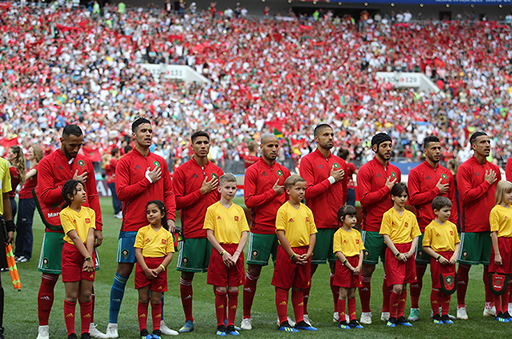2.1 Migrants and diaspora
In addition to those changing their allegiance, World Cup history has several examples of diasporic nations – i.e., when a country plays an active role in attracting overseas footballers who are often born and raised in a foreign country but, via their parents or grandparents, still have ethnic or kinship connections with the nation. The 1934 men’s Italian World Champion side included five players born in Argentina and Brazil to migrant Italian parents (Van Campenhout et al., 2018). In the preparation for the 2018 World Cup the Moroccan football federation actively reached out to male footballers with Moroccan parents in a campaign aimed to ‘bring back talents belonging to the soil’ (Kuper, 2018). Seventeen of the twenty-three players in their final squad were born outside of Morocco, resulting in them being called an ‘imported team’ with instructions conveyed in English, French and Arabic (Panja, 2018).

